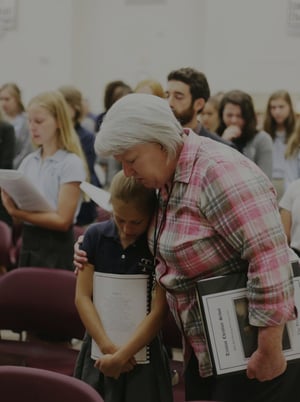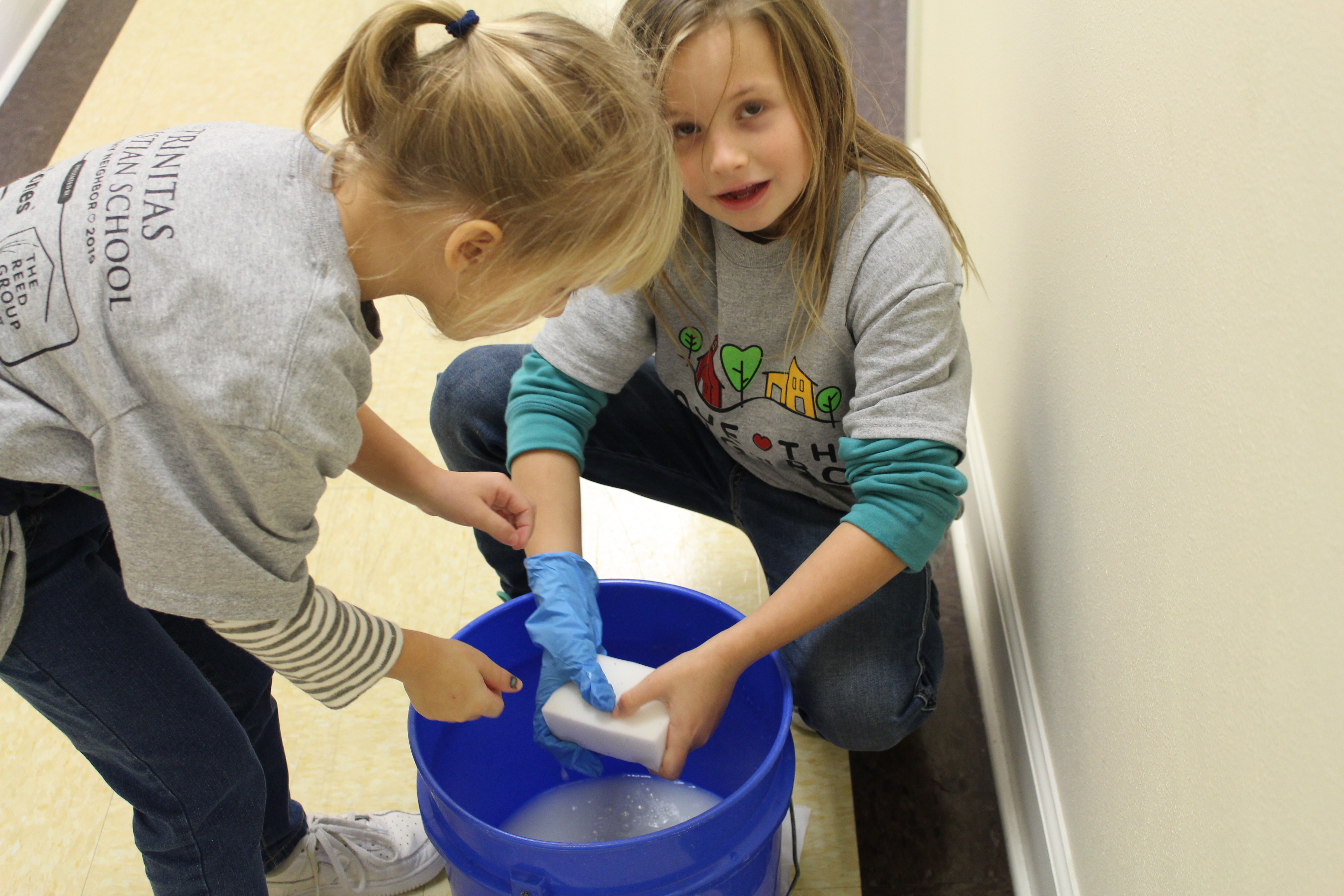Like many in the Trinitas community, lately, I have been reading Joshua Gibbs’s first book How to be Unlucky: Reflections on the Pursuit of Virtue. (Actually, I have been listening to it, which isn’t quite the same thing as reading it, but that is a discussion for another day.) Gibbs uses The Consolation of Philosophy and his years in the classroom (several of them at Trinitas) to approach the subject of pursuing virtue through classical education. Pursuing virtue is an educational activity we allude to from time to time, a catchphrase we hold up as an important goal of classical education, even a claim with which we sprinkle our marketing brochures, but really, what does it mean to pursue virtue? And why only pursue it? Do any of our students ever actually catch up with it?
Hands-on Education: A Feast for the Eyes, Hands, Mind, Feet . . .
In case you haven’t noticed, children do things adults don’t; for example, children run. They just run to run, not to go anywhere or for any reason, but just for the sheer pleasure of running. They will also pretend-play with just about any item they find. A stick becomes a Greek sword, a jacket is shaped to make a baby’s blanket, and sofa cushions become a fort.
Topics: Blog Posts, School Life, Teaching
Student: What do you think about students dating in high school?
Gibbs: Why date? Why not just get married?
Student: We’re obviously not old enough to get married.
Gibbs: So why date?
Topics: Blog Posts, School Life
One of my favorite teachers sometimes reminds her class of nine-year-olds that they came into this world with nothing and that they would have nothing still if their kind and benevolent parents hadn’t given them everything they need. She usually issues that reminder to her students in the context of a pep-talk about taking proper care of their clothes, lunchboxes, backpacks, pencils, binders—you get the idea, but it also extends to care of their desks, chairs, books, and other non-consumable items they use at school. She refers to these items under their care as their little kingdoms. If they can take good care of those little kingdoms, they will someday be prepared to rule well over larger kingdoms—households, businesses, churches, and governments, for example.
Topics: Blog Posts, School Life, Parenting
 We began our school year at Trinitas last Thursday with an orientation day. It was delightful to see all of the new and returning students hurrying in with their new binders and books and backpacks, all excited for the year ahead. Seeing how much all of the returning students have grown over the summer break is always bittersweet—exciting because they are slowly but surely becoming grown-up human beings, and sad because we so love to the cling to the cutest, sweetest, youngest version of them. Parents do so love to reminisce about the history of their children. Trinitas teachers love to reminisce about the history of those children too. At a school like Trinitas, we get to watch them grow from four-year-olds to eighteen-year-olds. That’s a lot of history.
We began our school year at Trinitas last Thursday with an orientation day. It was delightful to see all of the new and returning students hurrying in with their new binders and books and backpacks, all excited for the year ahead. Seeing how much all of the returning students have grown over the summer break is always bittersweet—exciting because they are slowly but surely becoming grown-up human beings, and sad because we so love to the cling to the cutest, sweetest, youngest version of them. Parents do so love to reminisce about the history of their children. Trinitas teachers love to reminisce about the history of those children too. At a school like Trinitas, we get to watch them grow from four-year-olds to eighteen-year-olds. That’s a lot of history.
Topics: Blog Posts, School Life, Teaching
My wife and I have attended an unusual number of weddings over the past few months. Far from being a burden, I consider our attendance at these glorious events a blessing. After the most recent wedding, I remarked to my family that every wedding like that one strikes a blow for the kingdom of God. Whatever do I mean by that? And what does this have to do with classical Christian education or Trinitas Christian School?
Topics: Blog Posts, School Life, Christian Education, Christian Living
This time of year I meet with lots of prospective families as you might imagine. These meetings follow a very different agenda than they might at other schools. Trinitas is not doing school the same way the school down the road is doing school, and so not every family is a good fit for Trinitas—or Trinitas for the family, depending upon perspective. That is as it should be; it comports perfectly with the very different sort of mission we are on. Most private schools are engaged in a growth model; they want as many students as they can get just as quickly as they can get them. At Trinitas, however, we are looking for families that want the same things we want. We are trying to maintain a community of Christian families who have common goals for the education and discipleship of their children.
Topics: Blog Posts, School Life, Classical Education
.png?width=300&name=Untitled%20design%20(5).png) A Trinitas board member sent me an interesting article recently, entitled “When Knights Surrender Their Swords, Beasts Will Devour Maidens.” The author, Paul Bois, has written hundreds of articles expositing the Christian perspective on a host of political and social issues. I haven’t read them all, but this one had a solid message.
A Trinitas board member sent me an interesting article recently, entitled “When Knights Surrender Their Swords, Beasts Will Devour Maidens.” The author, Paul Bois, has written hundreds of articles expositing the Christian perspective on a host of political and social issues. I haven’t read them all, but this one had a solid message.
The subject of the article was this Weinstein fellow who is in so much hot water recently for taking advantage of young women in the movie business. I have little to add to that conversation, but I do want to comment on Bois’s theme. Reduced to its essence, his assertion is that this sort of thing is happening in our society because we allow it.
Topics: Blog Posts, School Life, Christian Education, Social Issues, Boys

.jpg)
-1.png)


.jpeg)


